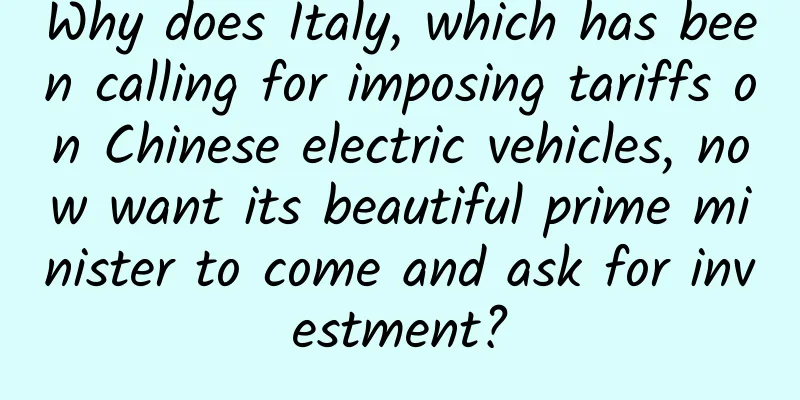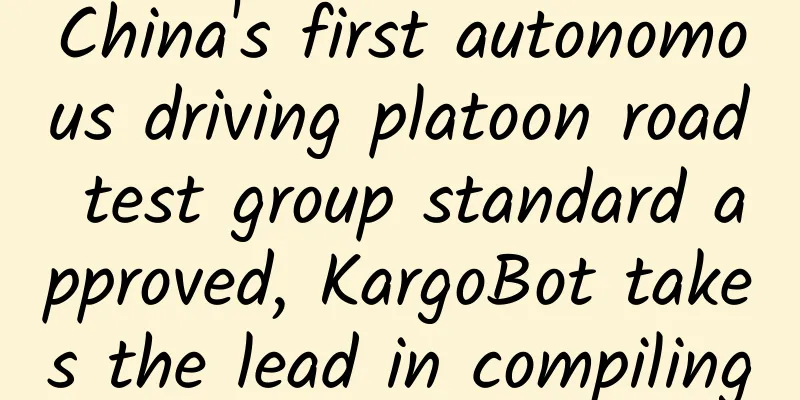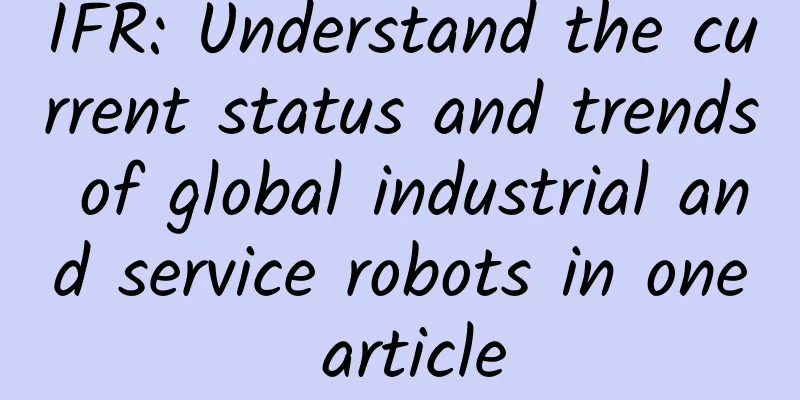Why does Italy, which has been calling for imposing tariffs on Chinese electric vehicles, now want its beautiful prime minister to come and ask for investment?

|
Should tariffs be imposed on Chinese electric vehicles? This is something that EU countries have collectively paid attention to recently. The global automobile market is currently in a critical period of change. China and the EU are the two major players in the world's new energy vehicles, so the EU's final choice is very important. The EU has been hesitating on this issue for several months. According to European media reports, the EU was originally scheduled to vote on the matter on September 25, but now the agenda has been canceled. The back-and-forth on such an important tariff issue reflects the huge divisions within the EU. On September 11, Spanish Prime Minister Sanchez ended his visit to China and made it clear that the EU should reconsider its position on imposing tariffs on Chinese electric vehicles; on September 24, the Hungarian Foreign Minister publicly stated that he would vote against this issue. Industry insiders believe that Germany, the largest automobile power in the EU, is likely to choose to "abstain" in the final vote. At the same time, some countries have expressed support for the EU's tax increase plan. In addition to France, the "instigator", Italy is also one of the main supporters of the plan. Recently, Italian Deputy Prime Minister Tania said that he would continue to support the EU's anti-subsidy tariffs on new energy vehicles from China. Italy's statement is quite surprising. At the end of July, when Italian Prime Minister Meroni visited China, she publicly stated that she "welcomes Chinese investment"; and before Meroni's visit to China, there was news that the Italian government would take over some discontinued car brands in the country and transfer them to Chinese manufacturers. Is Italy’s current statement contradictory? Italy may waver on certain foreign policies, but on a key issue like the EU's tariffs on Chinese electric vehicles, it is unlikely to contradict itself, having supported the plan from the outset. The purpose of Italy doing this is actually quite similar to that of France. Italy itself needs to develop the electric vehicle industry, but its domestic electric vehicle industry is seriously lagging behind. In 2023, the sales of pure electric vehicles in Italy reached 66,276 units, with a penetration rate of about 4.2%. However, since 2024, sales have continued to decline, with a decline of 18.5% in the first quarter and 34.9% in the second quarter. In the first half of the year, the penetration rate of electric vehicles was only 3.9%, making it one of the countries with the lowest penetration rate of electric vehicles in Europe. Italy is also relatively weak in core electric vehicle technology and related industrial chains. When Meroni visited China in July, the biggest Italian auto parts manufacturer accompanying him was Pirelli, a tire manufacturer. One can imagine Italy's weakness in the industrial chain. In October 2023, Stellantis Group reached a cooperation with Leapmotor by acquiring shares. In this cooperation, Leapmotor plays the role of technology exporter, while Leapmotor is just a second-tier new car-making force in China. In other words, the current Italian electric vehicle industry is very similar to China's domestic automobile industry 40 years ago. It is basically impossible to gain the dominant position through self-reliance. In this situation, the best way is to follow China's example. First, Italy needs to artificially increase the cost for Chinese new energy vehicle manufacturers to enter the European and Italian markets through administrative means such as raising tariffs, leaving room for survival for domestic related car companies. Secondly, Italy needs to vigorously attract investment and attract foreign giants such as BYD and Geely, as well as foreign auto parts giants such as CATL. It hopes that these manufacturers will invest and set up factories in Italy, obtain their technology transfer and diffusion, and then gradually cultivate a local new energy vehicle industry chain. The so-called "imposed tariffs" are imposed on electric vehicles produced in China and then exported to the EU. This type of vehicle is similar to the "imported cars" commonly seen in our country. If Chinese manufacturers invest and set up factories in Italy and have the status of "domestic cars" in Italy, they will not be affected by the tariff policy. Therefore, there is no contradiction between Italy imposing tariffs on Chinese electric vehicles on the one hand and welcoming Chinese manufacturers to invest in Italy on the other. Rather, these are two different means adopted for the same purpose, which is ultimately to enable the Italian electric vehicle industry to gain a foothold successfully. Italy also has a basic judgment that even if tariffs are imposed, it will not discourage Chinese manufacturers from investing in Europe. In fact, before the EU put forward this tax increase plan, Chinese manufacturers have already actively sought to invest and set up factories in European countries such as Italy. Italian car brands have a smaller and smaller influence in the Chinese market and were marginalized a few years ago. The Chinese market is dispensable to them, so they are not as afraid of China's retaliatory measures as Germany. This is also an important reason why Italy is determined to support the EU's tax increase plan. Theoretically, there is nothing wrong with Italy's approach. Imposing tariffs on imported cars and welcoming joint ventures is what the Chinese auto industry did at the beginning. It is doing this to create an Italian version of "market for technology." But there is a gap between theory and reality. "If China can do it, so can I" is an illusion of many countries in the world. Italy's wishful thinking is likely to fail. China was able to "exchange market for technology" because it had a huge domestic automobile consumer market. In 1980, China's national automobile sales were only 165,000 vehicles, but in 2023, it soared to 30 million vehicles. Such a huge "pie" is enough to attract any large automobile manufacturer. Italy obviously does not have such energy. Its insistence on imposing tariffs on Chinese automakers has undermined the cooperative relationship and mutual trust between Italy and Chinese manufacturers, which will have an adverse impact on cooperation between the two sides. In addition, Italy is not the only country that can take over the production capacity transfer of China's new energy vehicle manufacturers. Spain, Hungary and even Türkiye can also do so. There is nothing irreplaceable about Italy in this regard. In the end, there are only two possible outcomes for this matter.
Europe is still arguing over this issue, but Italy itself should be clear that it, as an old developed capitalist country, is no longer what it used to be. If it wants to walk a tightrope between the left and right policies, it will most likely fall to the ground in the end. It will never cover up its weak nature in the electric industry just because the country's beautiful prime minister has some personal friendship with Musk. As a winner of Toutiao's Qingyun Plan and Baijiahao's Bai+ Plan, the 2019 Baidu Digital Author of the Year, the Baijiahao's Most Popular Author in the Technology Field, the 2019 Sogou Technology and Culture Author, and the 2021 Baijiahao Quarterly Influential Creator, he has won many awards, including the 2013 Sohu Best Industry Media Person, the 2015 China New Media Entrepreneurship Competition Beijing Third Place, the 2015 Guangmang Experience Award, the 2015 China New Media Entrepreneurship Competition Finals Third Place, and the 2018 Baidu Dynamic Annual Powerful Celebrity. |
<<: There is no suspense about the new Macbook Pro. You just need to save money to buy it.
>>: iPhone 7 leaked again! The lens uses low-purity sapphire glass
Recommend
If you want to advertise well, these cases are indispensable
As we all know, excellent cases are of great sign...
Is “children’s food” more suitable for children? Don’t rush to buy it!
A few days ago, I went shopping with a friend who...
How to plan an efficient marketing operation plan?
Based on my own experience, I shared how the mobi...
APP infringement continues despite repeated bans? The Ministry of Industry and Information Technology strikes hard again
In this era of advanced Internet, there are endle...
Home appliance companies will face severe challenges in their intelligent transformation in the next three years
From the second half of last year to the first ha...
What kind of tree can be called an "ancient tree"? They help the ancient trees "have a place to live" in their old age
Ancient and famous trees are called "green n...
Tips for attractive job ads!
As we all know, a job advertisement consists of t...
What should you pay attention to when doing Baidu bidding? Can I do Baidu bidding myself?
Have you ever had this experience: watching the m...
Is Windows 9 really going to be free?
Recently, there have been a lot of reports about ...
Drink juice or eat fruit? You may have been choosing the wrong one!
Fruits are nutritious and healthy, and are an ess...
Demand analysis for B-side product operations!
When making B-side products, what types of user n...
Nissan Leaf's autopilot turned off during demonstration, posing safety issues
Last week in Yokohama, near Tokyo, Nissan Motor C...
Android is everywhere and invading Windows
Windows in the desktop era and Android in the mob...
A matrix strategy project with a monthly income of 20,000+, which even novices can easily get started with
I haven't written a project analysis article ...
Chuchujie CEO, a post-85s generation’s experience in managing millions of fans
The first time I met Lu Jinjie was at the Tencent...


![[Smart Farmers] The Wandering Earth from an Agricultural Perspective: Having Survived Several Extinction Events, This “Living Fossil Fish” May Become Hope for Doomsday](/upload/images/67f246011d7e6.webp)






